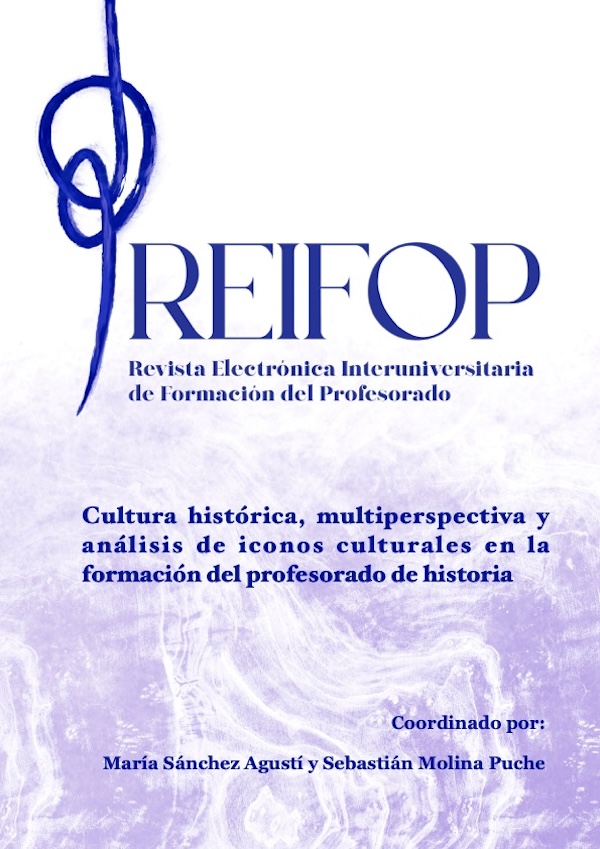El análisis estadístico de datos en la investigación educativa
Abstract
In this paper, some basic issues and concepts about statistical data analysis in the context of educational research are analyzed. First, considering the statistical analysis as a phase of the research process, the importance of questions such as the adequate formulation of objectives and hypotheses, the design of the research, sampling and measurement, is emphasized. After a brief description of free and open statistical analysis software, some approaches and models are presented. The third block focuses on the statistical decision, contrasts and hypothesis testing with special attention to the concepts of significance and effect size.
Downloads
-
Abstract4447
-
pdf (Español (España))1513
References
Bain, R. (1934). Measurement in Sociology (A response to House). American Journal of Sociology 40 (1934), 481-488.
Benzécri, J.-P. (1973). L'Analyse des Données. Volume II. L'Analyse des Correspondances. París: Dunod.
Berliner, D. C. (2002). Educational Research: The Hardest Science of All. Educational Researcher, 31(8), 18-20.
Blanco Blanco, A. (2018). Estado de las prácticas científicas e investigación educativa. Posibles retos para la próxima década. Revista de Educación, 381, 207-232. https://doi.org/10.4438/1988-592X-RE-2017-381-386
Box, G. E. P. (1976). Science and statistics. Journal of the American Statistical Association, 71 (356): 791–799. doi:10.1080/01621459.1976.10480949
Campbell, D. F. y Stanley, J. C. (2005). Diseños experimentales y cuasiexperimentales en la investigación social (1a. edición 9a. reimpresión). Amorrortu Editores.
Cohen, J. (1988). Statistical Power Analysis for the Behavioral Sciences. Lawrence Earlbaum Ass.
Coleman, J. S. et al. (1966). Equality of Educational Opportunity. UD Dept. of Health, Education and Welfare. National Center for Educational Statistics. Us Gov. Printing Office. Washington D.C.
Creswell, J. W. (2015). A concise introduction to mixed methods research. Sage.
Creswell, J. W. & Plano Clark, V. L. (2018). Designing and conducting mixed methods research. Sage.
Etxeberria, J., Joaristi, L., Lizasoain, L. (1990): Programación y Análisis estadísticos básicos con SPSS/PC+. Paraninfo. Madrid.
Etxeberria Murgiondo, J. (2007). Regresión múltiple (2a. Ed.). La Muralla.
Field, A. (2012). Discovering statistics using R. Sage Publications.
Field, A. (2018). Discovering statistics using IBM SPSS statistics (5th ed.). Sage. CRC Press.
Fisher, R. A. (1935). The design of experiments. Edinburgh: Oliver and Boyd.
Gaviria, J.L. y Castro, M. (2005). Modelos jerárquicos lineales. Madrid. La Muralla.
Gopalan, M., Rosinger, K., & Ahn, J. B. (2020). Use of Quasi-Experimental Research Designs in Education Research: Growth, Promise, and Challenges. Review of Research in Education, 44(1), 218-243. https://doi.org/10.3102/0091732X20903302
Joaristi, L. y Lizasoain, L. (2000). Análisis de Correspondencias. La Muralla. Madrid.
Likert, R. (1932). A technique for the measurement of attitudes. Archives of Psychology, 22, 140-155.
López-Martín, E., & Ardura-Martínez, D. (2022). El tamaño del efecto en la publicación científica. Educación XX1, 26(1), 9-17. https://doi.org/10.5944/educxx1.36276
Magnusson, K. (2023). A Causal Inference Perspective on Therapist Effects. PsyArXiv
Marco, A. (2024). A pen and paper introduction to statistics. CRC.
Navarro, D. J. y Foxcroft, D. R. (2022). Learning statistics with jamovi: a tutorial for psychology students and other beginners. (Version 0.75). DOI: 10.24384/hgc3-7p15
OECD (2006) International Workshop on Impact Evaluation for Development. OECD. Disponible en:https://www.oecd.org/dac/evaluation/dcdndep/internationalworkshoponimpactevaluationfordevelopment15november2006-hostedbytheworldbankandthedacevaluationnetwork.htm
Stevens, S. S. (1946). On the Theory of Scales of Measurement. Science, 103(2684), 677–680. http://www.jstor.org/stable/1671815
Taber, K. S. (2019). Experimental research into teaching innovations: responding to methodological and ethical challenges, Studies in Science Education, 55(1), 69-119, DOI: 10.1080/03057267.2019.1658058
Touron, J. (ed.), Lizasoain, L., Navarro, E. y López-González, E. (2023). Análisis de Datos y Medida en Educación. Logroño: UNIR Editorial.
Los artículos que se publican en esta revista están sujetos a los siguientes términos:
1. El Departamento de Métodos de Investigación y Diagnóstico en Educación de la Universidad de Murcia (España), junto con el Servicio de Publicaciones de la Universitdad de Murcia (Editum) son los editores de la revista REIFOP y conserva los derechos patrimoniales (copyright) de los artículos publicados, permitiendo la reutilización de las mismos bajo la licencia de uso indicada en el punto 2.
2. Las obras se publican en la edición electrónica de la revista bajo una licencia Creative Commons Reconocimiento-NoComercial-SinObraDerivada 3.0 España (texto legal). Se pueden copiar, usar, difundir, transmitir y exponer públicamente, siempre que: i) se cite la autoría y la fuente original de su publicación (revista, editores y URL de la obra); ii) no se usen para fines comerciales; iii) se mencione la existencia y especificaciones de esta licencia de uso.
3. Condiciones de auto-archivo. Se permite y se anima a los autores a difundir electrónicamente las versiones pre-print (versión antes de ser evaluada) y/o post-print (versión evaluada y aceptada para su publicación) de sus obras antes de su publicación, ya que favorece su circulación y difusión más temprana y con ello un posible aumento en su citación y alcance entre la comunidad académica. Color RoMEO: verde.















